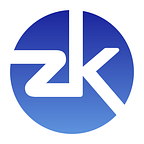KYT Sessions #3: Pulse Checking Network Health with Voyager — 06/09/2023
We had the pleasure of having Voyager on our third and penultimate installment of our KYT Sessions. This session featured Chee and Prince, developers from Voyager — Starknet’s block explorer.
This session focused on building our community’s blockchain literacy, diving into using block explorers to identify smart contract information and trace transactions.
What is a Block Explorer?
Functionally, a block explorer:
- Retrieves current state data from feedergate
- Retrieves future data
- Populates servers and databases to run indexers
Block explorers allow users to pull and aggregate insights about contracts and user behaviour, all without needing to access the node network to pull this data. (For a refresher on what nodes are, we had the pleasure of Apibara’s Founder, Franceso, run through it in our first KYT Session).
For the average user in the zkLend context, it means key information (covered in our last KYT session) about zkLend protocol or transactions can be accessed. Block explorers are key parts of infrastructure for every network, whether it’s Etherscan, Arbiscan, BSC Scan, or Snowtrace to name a few.
Introducing Voyager
Voyager is the block explorer of Starknet developed by Nethermind. Nethermind has contributed to various key infrastructure pieces within the Starknet stack, such as Juno (full node implementation), Remix Plugin, Starknet in GO and the CairoVM.
On the network health level, users can access a data analytics session to dive into metrics for TPS, proof generation, block creation, block fee and many more network insights.
On the protocol and transaction level, users can track the lifecycle of their transactions with Voyager and delve deeper into the state of their transaction with ‘internal calls’ and the hierarchy of functions within each event. (Our second KYT session briefly covered some of the key metrics users might be interested in when using zkLend.)
Part of Voyager’s offering includes a recent API offering which is currently in beta stage. Application for early access can be found here. Voyager’s API provides access to Starknet data on Mainnet, Testnet Goerli and Testnet Goerli2.
Leveraging on the Voyager API, Starknet apps can get Starknet data directly onto their apps. Apps may retrieve endpoints such as blocks, transactions, contracts, tokens, classes and events, or even a specific point in time. The Voyager team is working on providing a basic set of API endpoints to the public, while offering clients with unique requirements with customized enterprise solutions. Builders can structure customized API to retrieve Starknet’s blockchain data instantly, without the need to set up and operate nodes and indexers themselves.
Concluding Thoughts
This session was motivated as an initial entry point for block exploration on Starknet. Block explorers and API are a powerful tool for protocols and users to gain more insights into network health and user behavior.
We’re thankful to have Voyager on this latest session, for best results combine this session with our previous session to become an ultimate on-chain network and protocol whizz. That’s it for now, tune in for the final session write up, coming soon!
zkLend Team.
About KYT Sessions
KYT Sessions are a series of immersive talks and tutorials with a final community challenge that will elevate your transaction tracking skills ahead of our mainnet launch. Community members will dive into the basics of blockchain indexing, master the art of navigating block explorers, and all with with visionary Starknet leaders who’ll guide you through this experience.
About zkLend
zkLend is the native money-market protocol on StarkNet, an L2 scaling solution combining zk-rollup scalability, superior transaction speed, and cost-savings with Ethereum’s security.
V1 introduces core asset support, double-sided collateral and borrow factors, as well as censorship-resistant oracle partners. The Artemis code base has been audited by industry leading firms ABDK and Nethermind, with the latter conducting formal verification. At launch users can permissionlessly and securely deposit cryptocurrencies, earn yield, and borrow other assets in a self-custodial manner.
